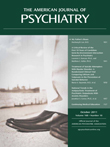Response to Baandrup Letter
To the Editor: Dr. Baandrup raises the important question of how dosing may have affected the outcomes of individuals randomly assigned to stay on antipsychotic polypharmacy compared with those who switched to antipsychotic monotherapy. Prescribers were free to vary dosage in either condition, including increasing the dosage of the monotherapy agent when discontinuing the other antipsychotic medication (1). We report here that relatively few prescribers elected to increase the dosage of the remaining medication when switching individuals from polypharmacy to monotherapy. Of the 58 individuals who were assigned to switch to monotherapy and who began their assigned treatment, 45 (78%) did not have a dosage increase for the remaining antipsychotic. Of 18 individuals assigned to switch to monotherapy who discontinued their assigned treatment (“failed switchers”), 17 (94%) did not have a dosage increase before discontinuing their assigned treatment. Of the 40 individuals assigned to switch who did not discontinue their assigned treatment (“successful switchers”), 28 (70%) did so without increasing the dosage of the remaining antipsychotic. This provides some support to Dr. Baandrup's proposal that a preemptive increase in the dosage of the monotherapy antipsychotic drug could be helpful to some individuals switching to monotherapy.
Even with such a bias potentially favoring those who were randomly assigned to continue with polypharmacy, the stay and switch groups did not differ with respect to symptom control, and switching to monotherapy resulted in weight loss (1) and, as noted here, a lower total antipsychotic load for most patients. All else being equal, exposing people to the adverse effects of fewer medications is preferable. The study results suggest that a trial with monotherapy can be considered by physicians and patients stable on antipsychotic polypharmacy with little concern about clinical status. We agree with Dr. Baandrup that increasing the dosage of the monotherapy is an important option to consider before going back to polypharmacy; however, many individuals did well without increasing the dosage of the remaining antipsychotic. We would be wary of a uniform strategy of increasing the dosage of the remaining antipsychotic when switching from antipsychotic polypharmacy to antipsychotic monotherapy.
1. ,



